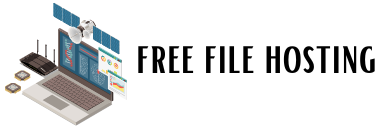The introduction of IoT platforms has transformed the conventional practices of businesses, thanks to the groundbreaking impact of the Internet of Things (IoT). These platforms provide businesses with real-time data and insights that help them streamline their operations, enhance customer experience, and make data-driven decisions. IoT solutions have become an integral part of the business world, allowing companies to automate and optimize their operations while creating a personalized experience for their customers.
In this blog, we will discuss how IoT platforms have altered business rules and their impact on various industries. We will explore the benefits of IoT solutions, the challenges and risks associated with implementing these platforms, and how businesses can mitigate these risks.
Streamlining Business Operations with IoT Platforms
IoT platforms can streamline business operations by automating various processes, reducing costs, and improving efficiency. These platforms can collect data from various sources, such as sensors, mobile devices, and machines, and analyze it to provide real-time insights. For example, in the manufacturing industry, IoT solutions can help automate the production process by collecting data from machines to detect any issues and alert the maintenance team. This reduces downtime and increases productivity.
Moreover, IoT platforms have improved supply chain management by providing real-time data on inventory levels, logistics, and delivery schedules. This has enabled businesses to optimize their supply chain and reduce costs. For instance, companies can use IoT solutions to track the location of their vehicles in real-time, which helps them optimize their routes and reduce fuel costs.
Enhancing Customer Experience with IoT Platforms
IoT platforms have transformed the way businesses interact with their customers. By providing personalized services, businesses can create a unique customer experience that differentiates them from their competitors. For example, in the retail industry, IoT solutions can help businesses provide personalized recommendations to customers based on their previous purchases. This enhances customer satisfaction and loyalty.
Moreover, IoT platforms have transformed the way businesses operate in the hospitality industry. Hotels can use IoT solutions to provide guests with a personalized experience, such as controlling room temperature and lighting preferences from their smartphones. This creates a memorable experience for guests and increases customer satisfaction.
Empowering Data-Driven Decision Making with IoT Platforms
IoT platforms have empowered businesses to make data-driven decisions by providing real-time data and insights. These platforms can collect data from various sources, such as sensors, social media, and mobile devices, and analyze it to provide insights on customer behavior, market trends, and operational efficiency.
For instance, in the healthcare industry, IoT solutions can collect data from wearable devices to monitor patients’ health status in real-time. This enables healthcare providers to make informed decisions about patient care and treatment plans. In the transportation industry, IoT platforms can collect data on traffic patterns and optimize routes for better efficiency and cost-effectiveness.
Challenges and Risks Associated with IoT Platforms
While IoT platforms have numerous benefits, there are also several challenges and risks associated with implementing these platforms. One of the biggest challenges is the complexity of these platforms, which requires specialized knowledge and expertise. Moreover, IoT solutions rely heavily on data, which raises concerns about privacy and cybersecurity.
Businesses must ensure that their IoT platforms are secure from cyber threats by implementing security protocols and regularly monitoring their systems for any vulnerabilities. This includes implementing access controls, using encryption, and regularly updating their systems to ensure they are protected against the latest threats.
Conclusion
In conclusion, IoT platforms have altered business rules by providing businesses with real-time data and insights that help them streamline their operations, enhance customer experience, and make data-driven decisions. These platforms have become integral to various industries, including manufacturing, retail, hospitality, healthcare, and transportation. While there are challenges and risks associated with implementing IoT platforms, businesses can mitigate them by implementing security protocols and regularly monitoring their systems for any vulnerabilities.
FAQs:
Q: What are the benefits of IoT platforms for businesses?
IoT platforms can help businesses streamline their operations, reduce costs, enhance customer experience, and make data-driven decisions.
Q: What are the risks associated with implementing IoT platforms?
The risks associated with implementing IoT platforms include cybersecurity threats, privacy concerns, and the complexity of these platforms.
Q: Which industries have been most impacted by IoT platforms?
IoT platforms have had a significant impact on various industries, including manufacturing, retail, hospitality, healthcare, and transportation.
Q: How can businesses mitigate the risks associated with implementing IoT platforms?
Businesses can mitigate the risks associated with implementing IoT platforms by implementing security protocols, regularly monitoring their systems, and updating their systems to protect against the latest threats.

